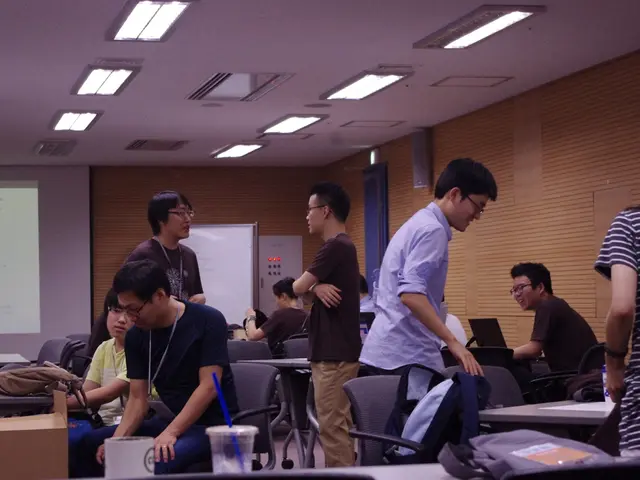Relinquishing the need for control: it's impossible to manage everything, after all.
Humans inherently seek control over their surroundings and circumstances, a yearning that stems from the desire to feel secure and less vulnerable to life's unpredictability. This need for control is often closely linked to our overall level of fear. When we feel we have control, we feel less threatened by the ebb and flow of life. However, this quest for control can lead to dissatisfaction due to its inherent unattainability.
Why? Because life is inherently unpredictable, and we cannot control everything. When our plans do not pan out as intended, clinging to things we cannot change only exacerbates negative emotions and fuels a destructive cycle of anxiety.
This excessive emphasis on control can have far-reaching consequences, not only for our personal well-being but also for our relationships, work, and creativity. The relentless pursuit of control can stifle our ability to be flexible, collaborative, and open to new opportunities.
A key strategy for breaking free from this cycle of control is to acknowledge and accept our powerlessness. Trusting that whatever circumstances we face, we can find a way to navigate them and emerge stronger. This shift in mindset allows us to let go of the need to control every outcome, opening us up to new possibilities we might not have considered otherwise.
One approach to gaining internal control is to focus on the aspects of our lives we can influence, such as our mindset, attitude, and self-care. By cultivating these areas, we can find greater happiness and inner peace. Mindfulness, self-care, and boundary-setting are some techniques that have been helpful for many in managing stress and anxiety.
In addition, mindfulness and being present in the moment can help regulate our emotions, providing a respite from the need for control. Disconnecting from digital devices and being truly present can be beneficial for mindfulness, as it allows us to hear our thoughts and feelings more clearly.
By recognizing what we can and cannot control, we can make a conscious effort to handle situations in a more constructive manner. Some events are simply beyond our control, and it can be helpful to consider the various possible outcomes so that we feel more comfortable and less anxious.
Letting go of the desire for control, even when it feels challenging or frustrating, is essential for maintaining a healthy balance, achieving inner peace, and living a more fulfilling life.
- Engaging in mindfulness practices, such as disconnecting from digital devices and being present in the moment, can aid in regulating emotions and alleviating the need for control, thereby promoting personal growth and mental health.
- Acknowledging powerlessness and learning to navigate life's unpredictability through self-care, mindset, and attitudes can lead to greater happiness and wellness, as well as improved relationships, work, and creativity.
- Focusing on education and self-development in the areas of health, wellness, and personal growth can empower individuals to gain control over aspects of their lives that are within their influence, fostering a more balanced and fulfilling life.







